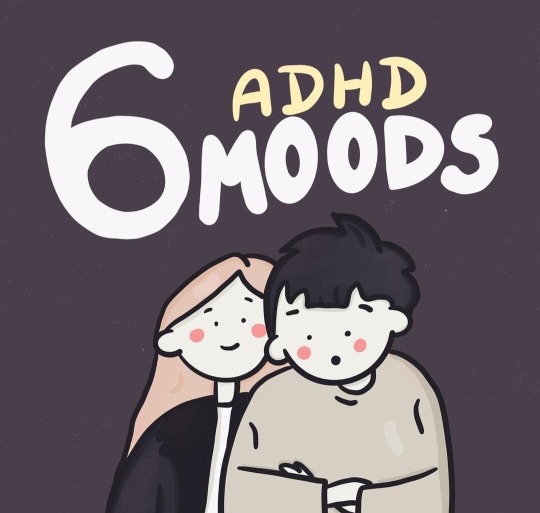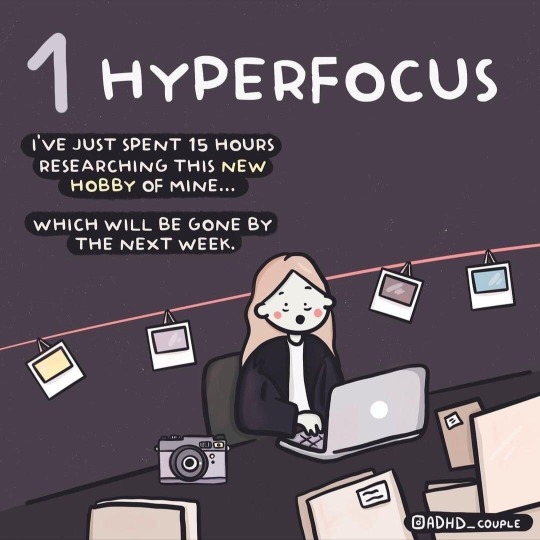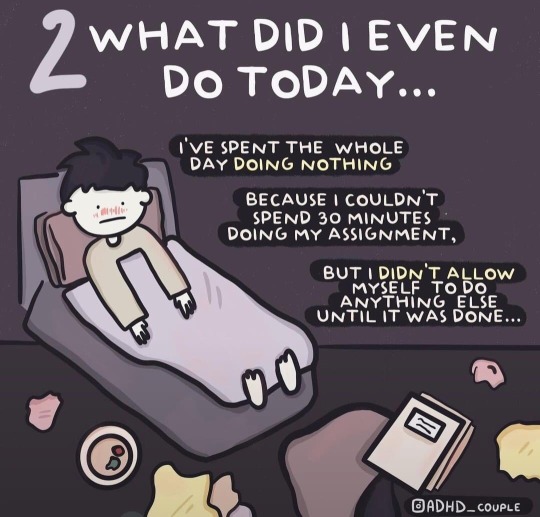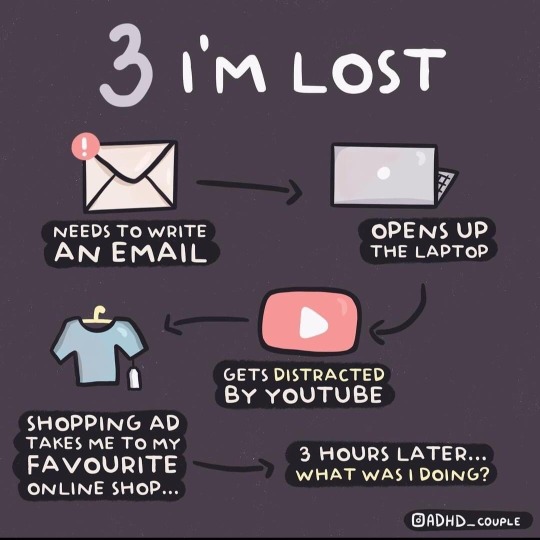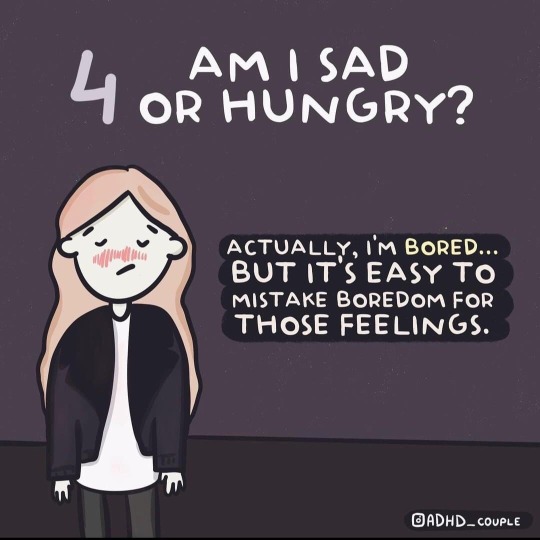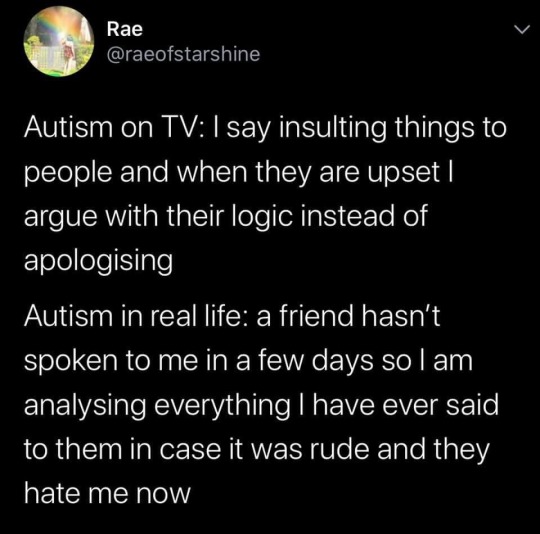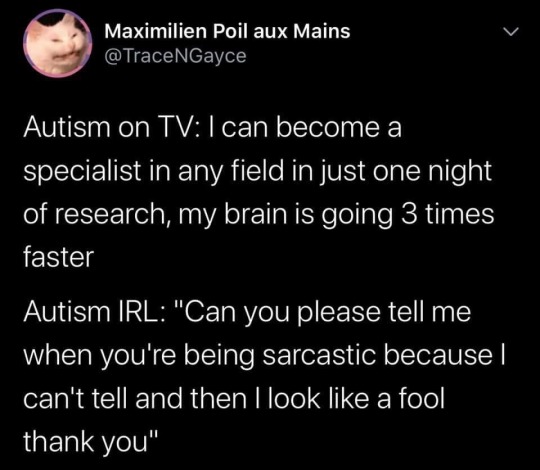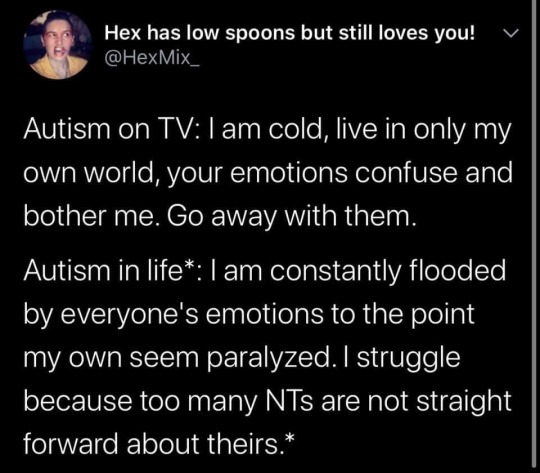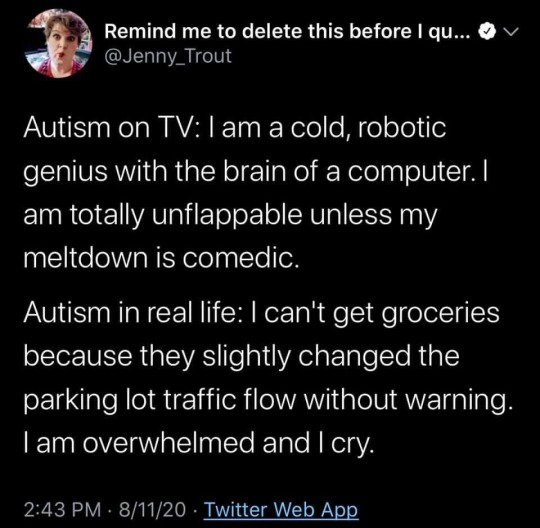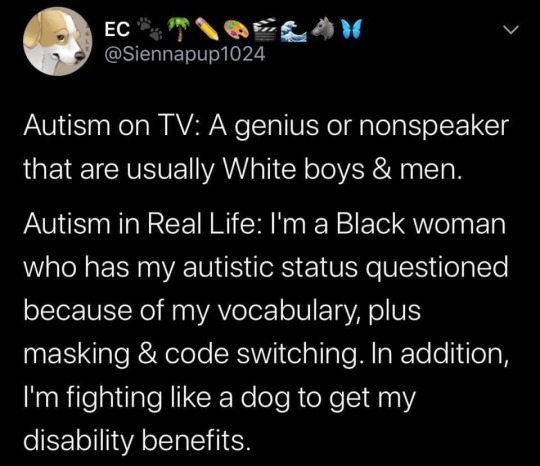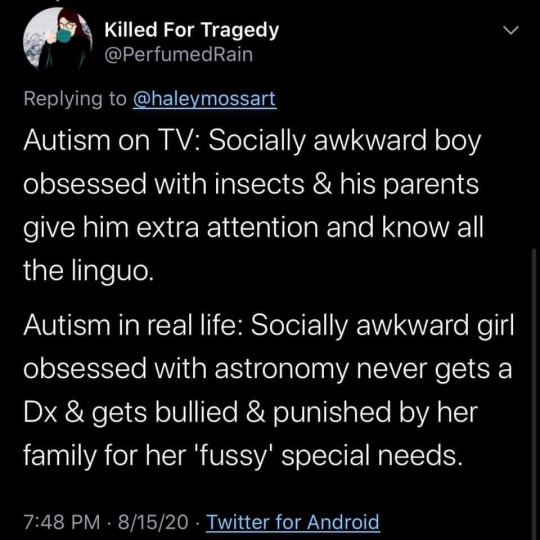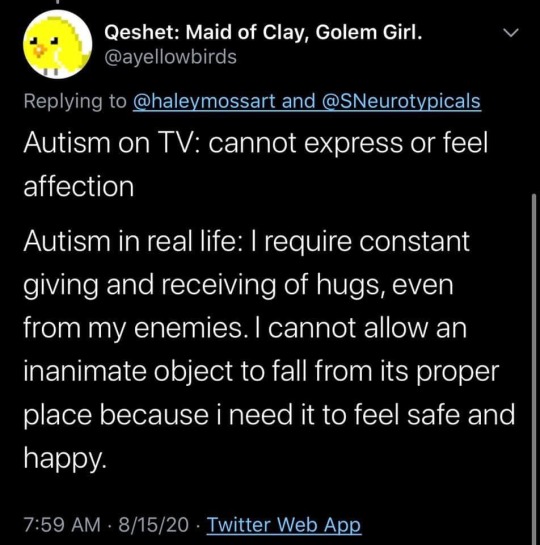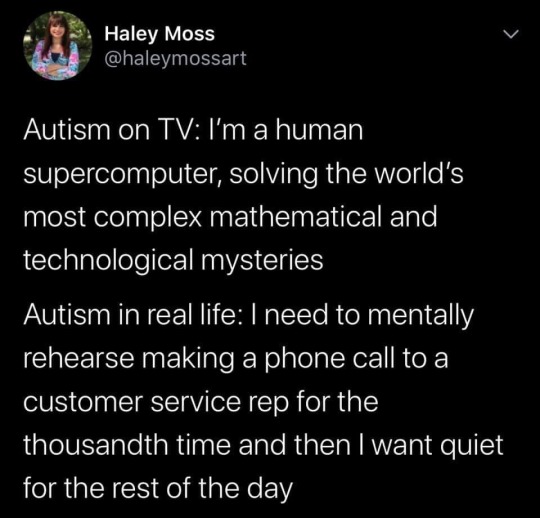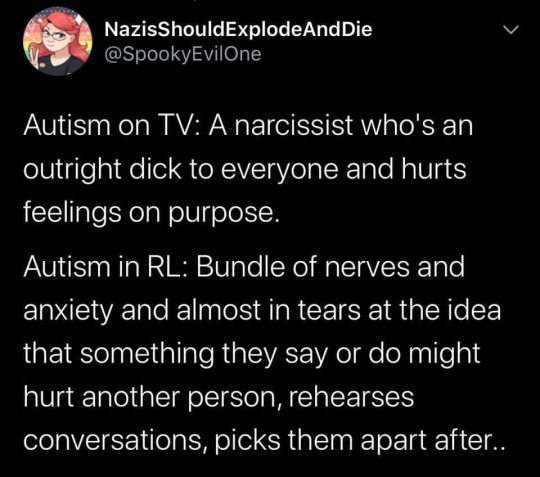Text
Undiagnosed Autism At School
Crying yourself to sleep, wondering why you aren’t like everyone else
Bullying
Not understanding whether people were joking or making fun of you
Having to be poked 20 times because you were so deep in your work you didn’t notice it was break time
“What are we meant to be doing? I didn’t understand”
Feeling like everyone hates you
Being made to sit on the floor because you rock/ spin on your chair as a stim
Not being able to concentrate due to noise
Anxiety
Going non verbal when asked a question in front of the class
Picked last during PE & never having a partner
Trying to be funny & make jokes but failing
Almost having a breakdown when a cover/supply teacher comes instead
Practicing & planning your response for the register
Learning how to ‘smile properly’ in the mirror
Labelled as the ‘shy/weird kid’
Being friends with your teachers & counsellors as you don’t get on with your peers
Teachers & peers take you on as a ‘pet project’
Never being invited to parties
Meltdowns when you go home after the school day
Watching & copying everyone around you
Dreading the school holidays & lack of structure
Redoing pieces of work because it’s not ‘perfect’
Finding it hard to make & maintain friendships
Were ‘gifted’ in primary school but started to struggle more as you got older
Getting in trouble because the teachers think you’re deliberately being annoying
Wearing the same clothes each mufti day
“I don’t get why you’re confused, this is simple stuff”
Excelled at one subject, sucked at one & passively good at the rest
Alone at break times/ in the playground
Developed trauma & mental illnesses such as anxiety & depression as a result of your school experiences
311 notes
·
View notes
Text

Since I have both Tourette's and autism, I decided to make this venn diagram to explain the differences and similarities between tics and stims. This is based on my experiences and my understanding of other people's experiences. I may be wrong in some parts, but I'm pretty sure this general idea is correct. I find this much more helpful than the yawn/sneeze metaphor, personally.
10K notes
·
View notes
Text

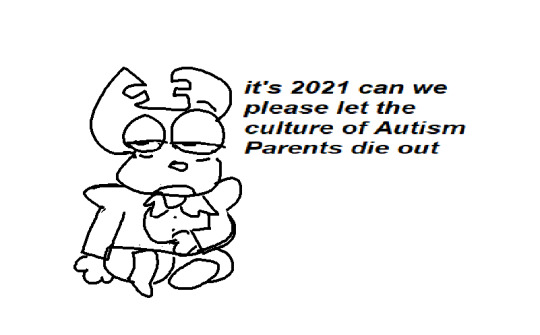
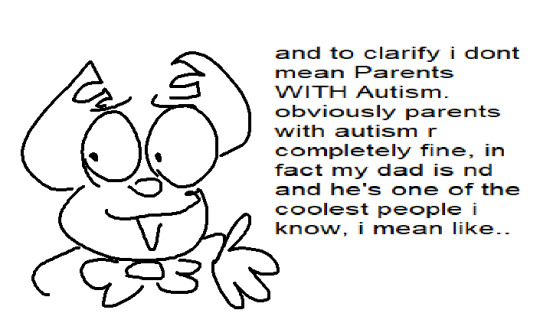


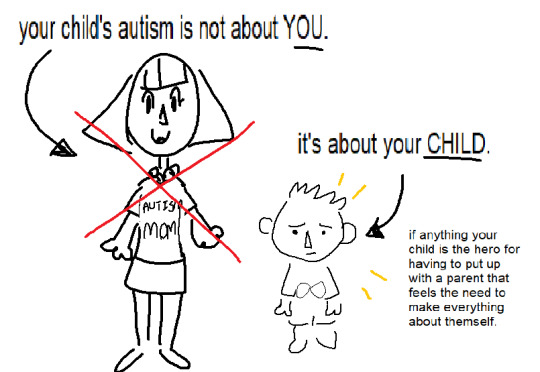
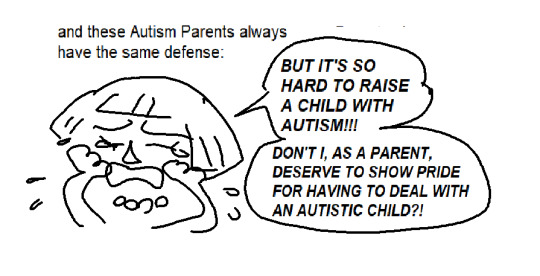

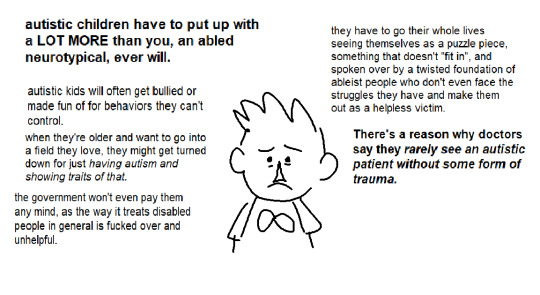
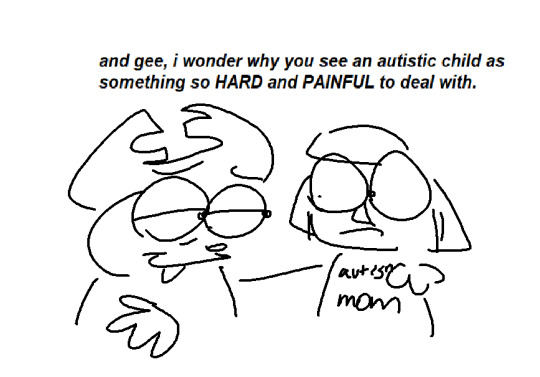

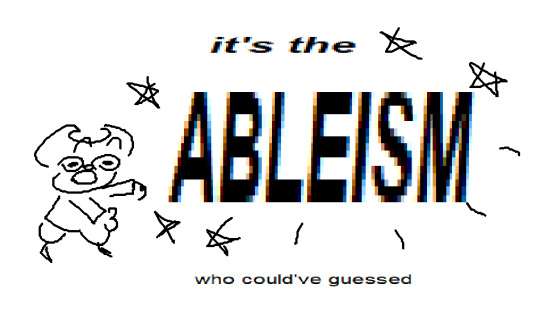
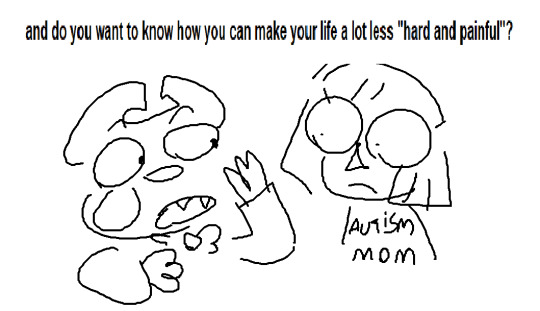

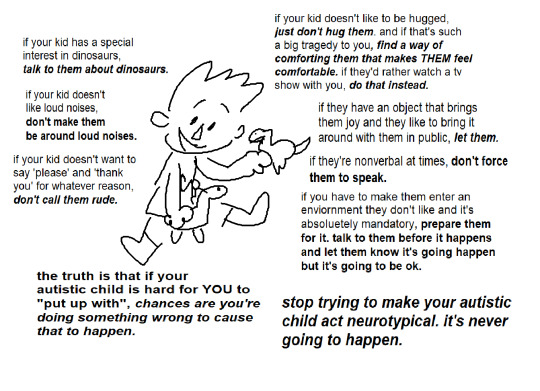
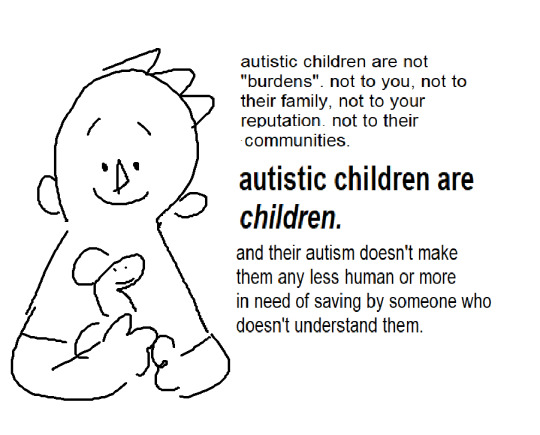
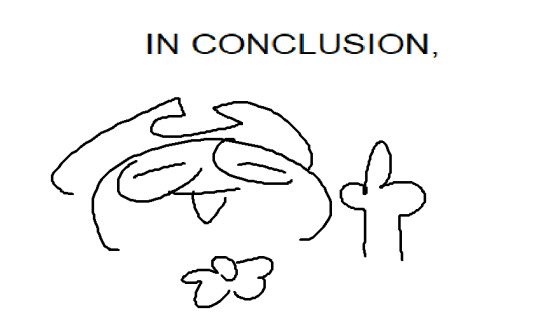
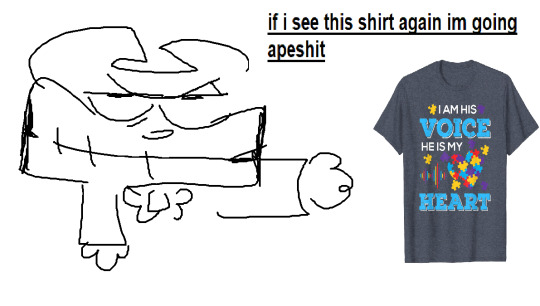
happy july i hate Autism Moms so much its unreal
30K notes
·
View notes
Text
Cleaning tips I wish I learned sooner being Depressed and Autistic
Split things up! Don’t try and do everything. I find splitting the room into chunks xtra helpful. Ex. : by the bed, by the desk, by the door, by the dresser. These are each a corner of my room that I do one at a time
Stop micromanaging! I’m always so hung up on making sure every little thing has a place. That’s good in general. HOWEVER not helpful of getting out of a depression nest! Make big categories! Ex: You craft? All the craft stuff goes here in this box! What’s that? These are all completely different mediums of craft? DOESNT MATTER RN! We’re just trying to get things more tidy!
Take breaks and stop minimizing! The room will still be there tomorrow! “But all I did was clean up the trash around my bed.” You say. Shshsh you can’t minimize that! Look at that you now have less trash in your room that’s a good step!!
Don’t let stuff prevent you from living in a nice area! You don’t deserve to live in a depression nest no one does! Some things I find hard are throwing out trash and recyclables. Now I know we all wanna do our part but if wanting to separate recycling from trash, but not having the energy to sort, is preventing you from living in a clean area it’s ultimately better to just throw it all away. Yes we can make a difference but if that microscopic difference is what’s making you live in a depression nest it’s ultimately not worth it.
Allow yourself to toss things! Have you been holding onto say a cereal box forever just in case you need it for a craft? There will be more cereal boxes. I’d say the hardest thing to toss for me growing up without much spare income is tossing clothes. But if you aren’t wearing them or just “waiting til it fits again” maybe you should toss it.
If you eat in your room and find dishes piling up. Try having a set of dishes, plate cup bowl and utensils, that live in your room. What? That seems counterproductive? Yes it may seem like that initially but if you just bring those dishes to and from the kitchen. You don’t have to wash them necessarily just wipe em. Or invest in tossable dishes. Paper plates cups bowls etc. Those are bad for the environment you say? Yes they are however having depression autism adhd or whatever is making it hard to clean your room is a disability allow yourself to not use what you need to survive.
Have stuff you use everyday? Put it in one place. I use my switch, fidgets, water bottle, chargers, multi utensil, meds, etc every day. So when I’m cleaning I put all these essential items in my backpack that I take everywhere. It’s easy to see and even if I stop mid clean I won’t have to tear up all this progress trying to find my everyday items.
This one isn’t necessary or applicable to all. However reward yourself with something that you couldn’t do if your room isn’t clean. I got a Minecraft rug I can’t exactly put that on top of all my stuff on the floor! So it was incentive to clean.
Prepare yourself for future failures. Holy crap that sounds gloomy right? WRONG! Failures are essential to habit building! Your room will most likely get dirty again! This is ok! Figure out what got messy and why. Bedside still getting cluttered in trash? Maybe it’s time to either put a trash can there or a bigger one. Clothes never end up in the dresser causing dirty clothes to pile on the floor? Get another hamper for dirty clothes. Find that loose things keep piling up in one area. Put a box/bin there now it’s at least contained.
Stop trying so hard to make your room look clean and normal! What? Isn’t that what this whole post is about? Yes and no! You have to work with yourself some things won’t change and that’s ok! Things do not necessarily have to be tucked away for your space to be clean! Have boxes of stuff lying around. If you need to have three laundry baskets let yourself have three laundry baskets. It may seem strange but you just want to find things that work.
387 notes
·
View notes
Text
why autistic/adhd people may not ask for help
i’m not sure where to start and i don’t even know what questions to ask that would help me understand any of this
i want to ask you but i’m deathly afraid that you will hate my guts and resent me forever
i feel stupid and embarrassed for not knowing/understanding this
i wasn’t paying attention/i zoned out/you were talking too fast while going over this
“oh my god are serious? it’s obvious, weren’t you paying any attention?” thanks for confirming i’m as stupid as i feel, appreciate it
i forgot about this deadline and i should’ve done it sooner but now it’s too late and awkward to say anything
your criticism will cast me into despair
i have no idea how to articulate my concerns so i will sit here silently until i can
i feel horrible about not doing it and not asking you initially and so i’m avoiding talking about it in the hopes that i will miraculously and suddenly understand it instead of doing the walk of shame to your office and risking the chance that i’ll piss you off and ruin your night
i’m working up the confidence to ask you
i’m formulating in my head a way to ask that doesn’t make me sound like i didn’t care enough to do it sooner, and that i actually have the willingness to do it, and that doesn’t place any blame on anyone except maybe me
autistic/adhd people feel free to add on! obviously this will vary from person to person, but this is my personal experience as an autistic and adhd person. if you’re neurotypical, please don’t try to offer tips for how to get around this because i can almost guarantee it will not be helpful :)
20K notes
·
View notes
Text
Questions to help break through a ‘I can’t do the Thing’ wall
I’m not doing the Thing, but if I were to do the Thing, what would be the first bit to tackle?
eg: I’m having trouble washing up. I’ll start by just getting all the dishes into one place and emptying the drying rack.
Often, you might find that the first bit was what you were stuck on, and now you’ve done that, you feel ready to do the whole Thing. But if not, that’s fine, you’ve set things up to be easier later! Similarly:
What can I do to set things up for when I’m ready?
eg: I need to apply for a job vacancy I’ve seen. That feels really overwhelming and I don’t have the energy right now. I will create an email with the correct address in and open the files I’ll need for tomorrow.
Half-done is half more than you had before, and it will make things easier when you come back. Reduce the friction and complexity as much as you can.
Will this task actually be any easier if I do it later?
eg: I need to re-spray my waterproofs. It’s sunny today but it’s going to be raining all week, so it would actually be easier to do it now so I can do it outside and let them air. ‘Kay FINE, guess I will.
or: I want to make progress on my Creative Endeavour. I’m having a lot of trouble focussing at the moment but tomorrow I’ll be better rested and my Creative Group will be meeting. It will genuinely be easier then so I should stop worrying about it for now.
Sometimes, you realise that it would legitimately be easier to do a task later. Other times, you realise it would suck more to put it off, and that can help give you a nudge to do it sooner. It also helps reframe it in your head from “will I do the Thing?” to “when will I do the Thing?”
These are some questions that I use myself and I thought I’d share them to see if they’re handy for anyone else!
16K notes
·
View notes
Text
Things you should not say to people (especially neurodivergent people & people with trauma):
"It's weird that you carry a stuffed animal with you"
"just clear your head"
"you're not a kid"
"you're too old for toys"
"stop humming"
"stop bouncing your leg"
"just go over there"
"it's not that hard"
"grow up"
"you're talking too much"
"you don't seem [enter mental illness/disorder]"
"your room is disgusting"
"don't you ever do anything?"
"did you even try?"
"you look crazy"
"are you sure you want to wear that out?
"why are you always crying?"
"that's just life"
"get over it"
"you should understand this easily"
"I think you're faking it"
"i don't think you need meds"
"you used to be so happy"
"you've always had a good life"
"what part of ____ do you not understand???"
*yelling*
"it's not that many people, stop covering your ears"
"this is the real world"
"it's not hard to make friends"
"are you slow or something?"
"what's so hard about ordering food?"
"you're still not done with that?"
"it didn't seem like you had adhd until your diagnosis"
"i really don't think [insert mental illness/disorder is real"
"i don't care how you feel about it"
"why can't you follow simple instructions?"
"you always pull your phone out in public and don't talk to anyone"
"if you cared, you would've heard me"
"no, you're just not listening."
"it's just a hug!"
"could you just act normal"
"stop being so quiet"
"stop being so loud"
"why can't we touch you? we're your family."
RB and add your own! Remember that your mental illness does not make you any less of a person and no one should treat you as less of a person because of it. ✨
7K notes
·
View notes
Text
If people wrote about other conditions like they do about autism:
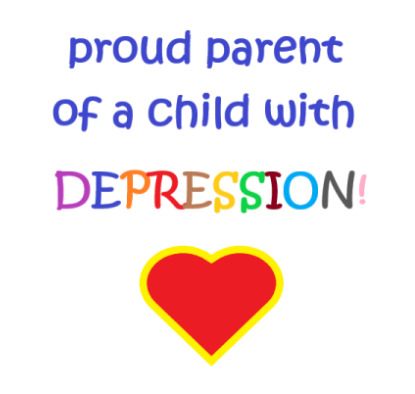

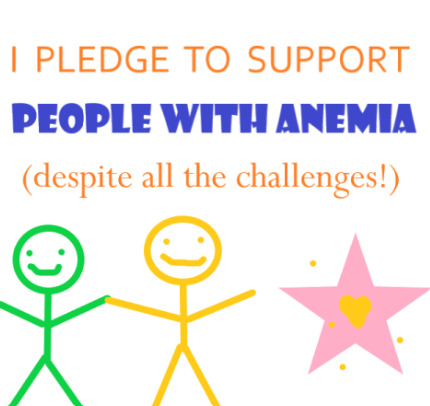
BONUS:
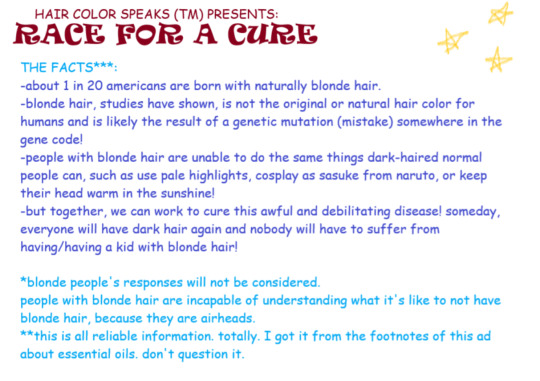
(in short, we’re sick and tired of being treated like infants who are shallow and incapable of basic comprehension. we aren’t your circus animals to parade around and cluck at. don’t think we’re “too stupid” to know what you’re doing. we know exactly what you’re doing. stop infantilizing us. you’re the ones who are really acting like babies.)
15K notes
·
View notes
Text
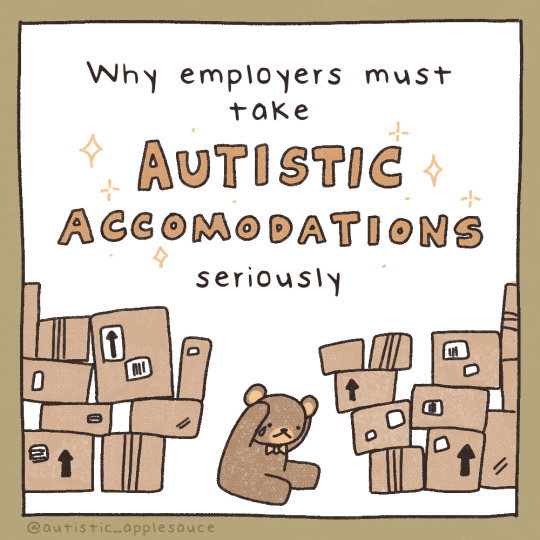
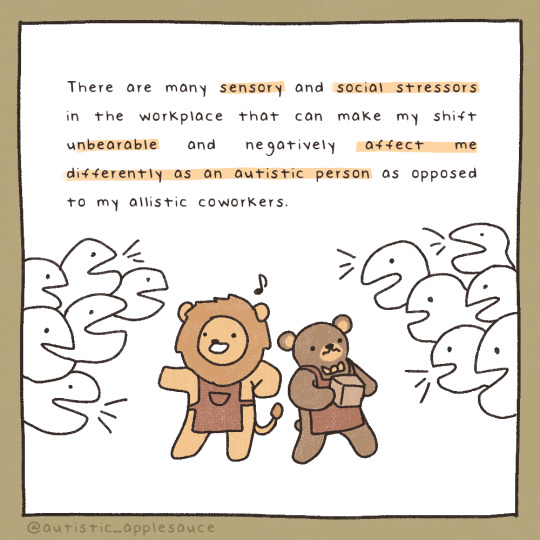
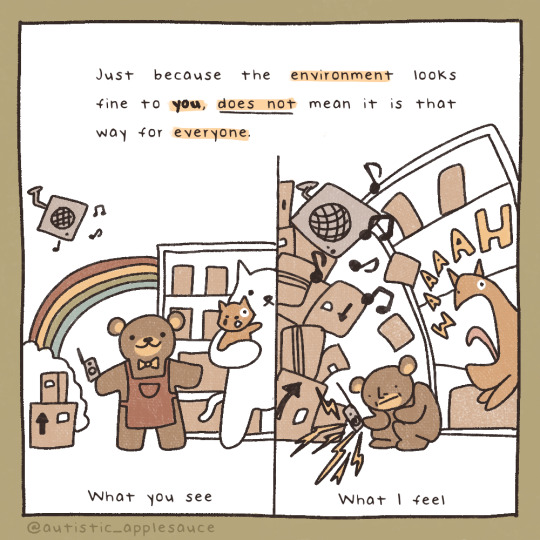
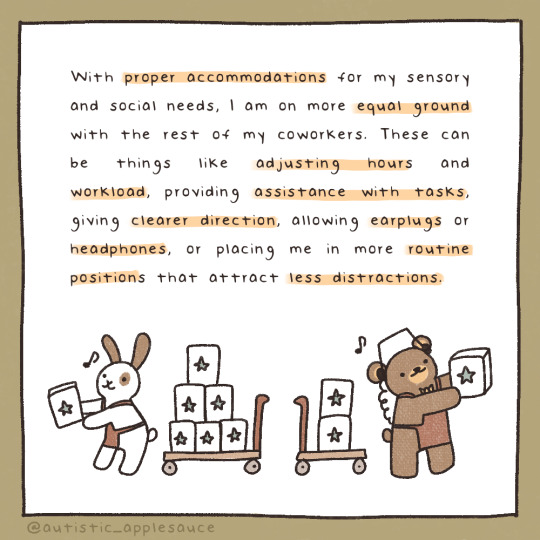
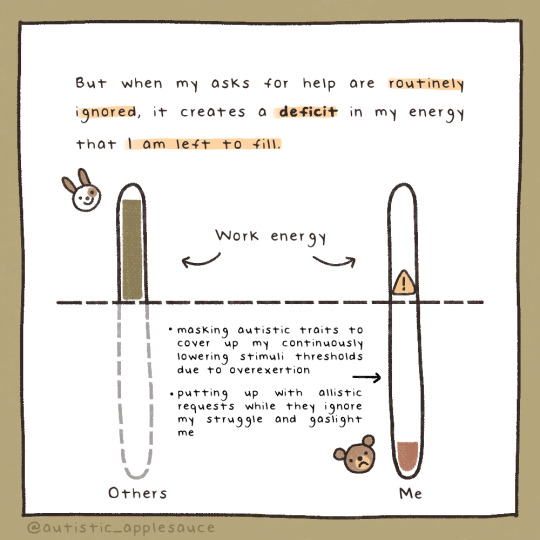
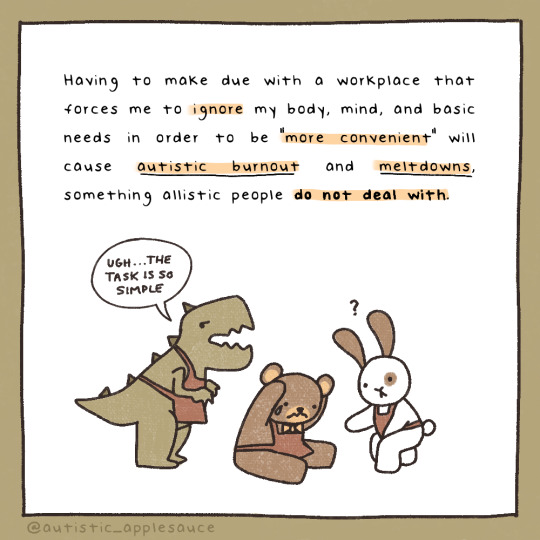

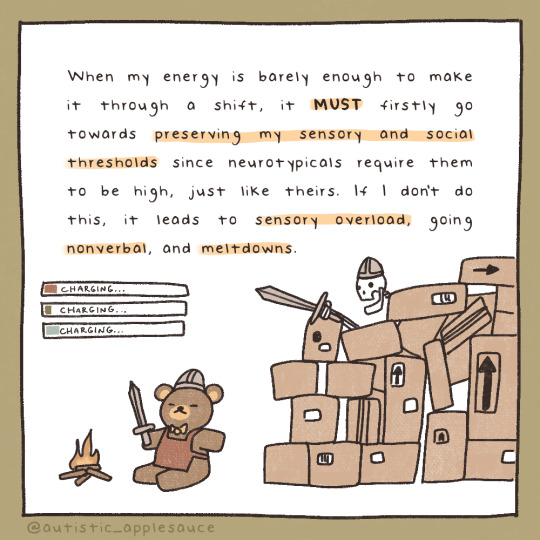
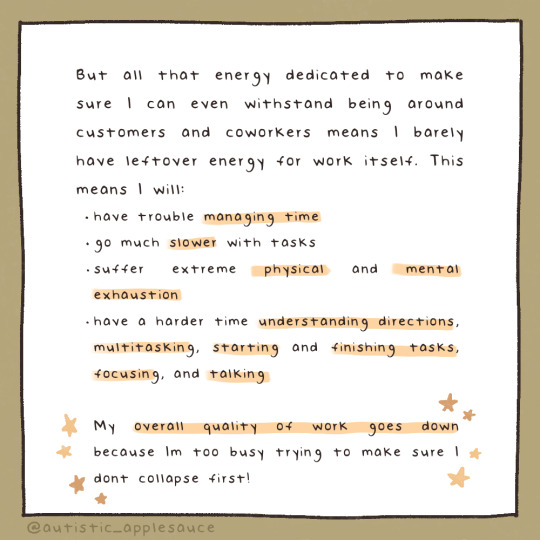

I quit my job! I was shoved into a position I had turned down: but work didn’t care. They assumed I must be a jack of all trades under any condition just because I “looked” capable. I get hired and admired for being one of the best employees because of my attention to detail, organisation, problem solving skills, etc and then regularly pushed over my limits and used as a doormat cos it’s easier for management to ignore my basic needs if it means accessing my strengths and getting their job done “right”. But when you IGNORE my needs, I CAN’T do your job right!!! My work performance goes downhill and they wonder why. And within a year, I’m forced to quit. All because those in charge wanted to force me to be more convenient as they increased workload and hours and got irritated when I told them that was beyond my limits. “UGH! You do so well doing X, why can’t you just do this too??” they seemed to say. Their pushing led to a sharp decline in my physical and mental health. Autistic people deserve better than this. Your “equal employment opportunity” claim is a pathetic lie if you brush the needs of autistic people under your corporate, capitalist rug.
🌻Follow Applesauce on Instagram too! @autistic_applesauce
14K notes
·
View notes
Text
cleaning tasks from neurotypical to autistic/neurodivergent people
hi and welcome to my 2nd original post to the actually autistic/ actually neurodivergent community! the last time i posted, it was received very well, and i’m so happy about that!! today, i would like to discuss the topic of how to give simple cleaning tasks to autistic or neurodivergent people either if you’re neurotypical or if you’re nd-spec yourself and want to use this to help other nd spec people in your life. another thing i’ve added is how to talk about the chore around them afterwards without making them feel bad 😊🤍
this post is mainly targeted parents/chosen family or household partners, but can apply to anyone.
assigning the task in the situation
❌ avoid saying this:
after you’ve finished eating, can you help clean up that stuff over there
will you clean up your plates/cups after eating?
remember to clean up after yourself
why? being too vague or hinting when you talk about these seemingly simple cleaning tasks doesn’t work with me. when you never specify exactly what is expected of me, i’m more likely to forget unintentionally. i never intend to not be helpful or resist cleaning up, forgetting is accidental for me. the word ‘remember’ before a task is not always enough to help me recall the task in a detail.
✅ consider saying this instead:
after you’ve finished eating, can wash the cutting board, put the knives in the dishwasher, take off plates from the table and put the cups in the sink?
will you please make sure that the kitchen table and the dinner table are free from dishes, and leftover crumbs? and can you please put the leftover food away into the cupboard or in the refrigerator?
can you please do the dishes for me/ with me or dry off the already done dishes for me/ with me?
why? specifying the content of the cleaning chore which needs to be done helps me know exactly which tasks are expected of me and in which order. this is especially true if i’m supposed to do these tasks either without supervision or whilst i’m home alone. again, this is not laziness or a genuine choice, it’s a simple glitch in the short term memory because of my neurodivergence. while specifying what has to be done takes a little extra time, it stays in my memory for longer and is less likely to get lost in fixation of something else (like a special interest or unfinished task). using this approach, we both avoid the awkward confrontation afterwards and the hassle of joint cleanup.
talking about the task after the situation
❌ avoid saying this:
(disapprovingly) you never remember to clean up after yourself
(accusatory) i expected you to do this on your own
(guilt tripping) you’re (your age), you should be able to do this on your own by now
why? using strongly negative words like ‘never’ in a disapproving way makes me feel bad about myself and makes me less motivated to improve this behavior in the future. this is because i get the feeling that the person who assigned the task isn’t satisfied at any point. if you never specified your expectations and then accuse me of not meeting them, i feel uncomfortable and anxious. i never got a proper chance of doing the right job. finally, if you use my age in an attempt to make me feel guilty about my minor memory slip up, or you infantilize me/compare me to a child, i’ll feel invalidated and hurt. using my age to guilt trip me has nothing to do with the situation at hand and won’t help me become better.
✅ consider saying this instead:
(comforting tone) i know that you you didn’t do the task completely this time, but i’m sure you can do it next time. i don’t mind helping you.
(genuinely interested) is there something i can do so you can complete the task next time? is there something you feel like you’re missing? (=sensory aids or just readily available supplies)
(reassuring tone) it’s okay if you messed up this time. we can divide the tasks between us and help each other get this done
why? letting me know that i have a chance to better myself and offering your help at the same time lets me know that i’m allowed to make this mistake without my self-esteem dropping. it lets me know that this slip up has nothing to do with my personal worth. asking me with genuine interest if there is something you can do to help me be better next time motivates me to do better. being accommodating of my sensory needs makes me feel taken care of and accepted. going through strategies or aids will over time result in my succesful completion of the cleaning task. offering to split the cleaning task will enable me to still get peace of mind about it. this is not always possible, i know, but in settings with less stress and more time, this is a good solution. not belittling me for it allows me to feel good about myself while still either feeling motivated to do it, or actively doing it!
if anyone out there is struggling with living partners, parents or chosen family who don’t get this. i hope this helps you maybe show them what difference it makes. again, we’re not lazy, it’s just our disability! with support and love, we can work on this and overcome it. 🤍
1K notes
·
View notes
Note
I am gonna move out soon for university too and as an autistic person I am super terrified because I don't know all the people in the house I am gonna move into.
Do you mind me asking you for advice? (And maybe even from the anon who told the story about moving in with their best friend because too maybe it helps having someone's opinion that isn't seeing it from our perspective)
Don't let this take to much of your time!! Any advice no matter how short will be helpful. 😊
OMG!! Congrats on going to University! That's so exciting!! I'm so proud of you!! <3
I always start by saying this: Everyone is different, so what works for me might not work for you. But! I will still give you any advice I can currently think of <3
Firstly, if you have any comfort items, bring them! Stuffed animals, a special blanket, an old sweater, a photograph, etc. Yes, you're going to Uni and you're an "adult" now, but adults don't have to leave all their kid stuff behind. I have a lot of stuffed animals, personally, that I am super attached to and I have had for years! A couple have always come with me on road trips/vacations, and are always the last thing I pack when I'm moving (as in, they don't get packed, they sit in the front seat with me until we're in our new home, and they immediately go on the bed where they belong when we get there).
If you have any comfort books, movies, or TV shows, get them ready! Keep your book by your bedside (even if you don't read it, knowing it's there can help ease some stress). When I first moved away from home, I watched Tangled on repeat on my computer for 3 days straight (because Rapunzel is my comfort princess and I love the songs). My husband also bought me some coloring books so I had something to do when I started overthinking.
Obviously this is a Criminal Minds blog, so I will assume you like Criminal Minds too! Maybe save some of your favorite fanfictions somewhere (bookmark them) so you have something to focus on when you're feeling overwhelmed. Or write down your favorite episodes so you can go onto Netflix (or wherever you watch the show) to watch them!
Having small bits of comfort can help make the change a little easier. Decorating your room and covering your bed in colorful (or your favorite color) blankets and putting up dark curtains can help make your space feel safe.
When you meet your new roommates, have the people you do know with you for support. Maybe beforehand let them know how nervous and scared you are. If you're a touchy person (like me), ask if you can hold their hand when you introduce yourself to those you don't know. If your friends know about your ASD and your quirks, maybe let them know that you might shut down or get overwhelmed in the first few weeks/months while things are still changing, or until you have a solid routine.
Maybe come up with a loose "script" to explain to the new roommates how you're feeling. Tell them the truth, and tell them that you don't expect them to know how to handle when you're panicking/overstimulated/having a meltdown, but maybe offer a few suggestions? Like, for example: "When I go non-verbal, you can text me so we can still communicate. If I'm overstimulated, I like to wear my earbuds and listen to music to calm down, so if you see me wearing them, know I'm not ignoring you."
Ultimately, communication is key. And that can be hard when you're anxious and scared, so if you have friends who can stand with you and support you as you explain your needs, that will be a huge help!
And don't forget your comfort items! Don't be scared to have them, and don't let anyone make you feel bad for them either. I literally just watched the newest My Little Pony movie for the third time since it was released on Netflix like, two or three days ago (and I freaking love it so much, def a new comfort movie!).
And be yourself <3
22 notes
·
View notes
Note
what's the difference between a burnout and depression?
Burnout and depression can look very, very similar and, for many of us, they overlap.
In simple terms, an autistic burnout, also known as autistic regression, happens when the stresses of life outpace a person’s coping tools. This leads to a loss of skills and great difficulty coping with day to day life. A person in burnout may have more meltdowns, have more difficulty with verbal speech, experience more executive dysfunction, find it harder to read nonverbal cues, or just generally seem to become “more autistic.”
Depression, on the other hand, is characterized by ongoing feelings of sadness, emptiness, or hopelessness combined with other symptoms. The following is a list of depression symptoms:
Feelings of sadness, tearfulness, emptiness or hopelessness
Angry outbursts, irritability or frustration, even over small matters
Loss of interest or pleasure in most or all normal activities, such as sex, hobbies or sports
Sleep disturbances, including insomnia or sleeping too much
Tiredness and lack of energy, so even small tasks take extra effort
Reduced appetite and weight loss or increased cravings for food and weight gain
Anxiety, agitation or restlessness
Slowed thinking, speaking or body movements
Feelings of worthlessness or guilt, fixating on past failures or self-blame
Trouble thinking, concentrating, making decisions and remembering things
Frequent or recurrent thoughts of death, suicidal thoughts, suicide attempts or suicide
Unexplained physical problems, such as back pain or headaches
Some of these symptoms overlap with burnout, such as small tasks seeming to take extra effort, slowed thinking/speaking/body movements, and difficulty thinking/concentrating/making decisions/remembering things. However, the mood issues associated with depression (sadness, emptiness, anger, irritability, etc) are not an aspect of burnout. These feelings may present during a burnout as many of us experience depression and burnout simultaneously.
I hope this helps!
-Sabrina
433 notes
·
View notes
Note
Hi :) I just learned about PDA and it sounds so much like me, but all the info I’ve found is kinda of vague, do you know anything about it?
PDA means Pathological Demand Avoidance. is autism that shows up differently compared to other autistics
it's when you try your absolute hardest to avoid doing what other people ask or expect you to do on a daily basis. the reason for not doing what people ask of you is because of extreme anxiety.
Sometimes this extreme anxiety comes out as outright refusing to do a certain thing or sometimes finding reasons not to do what you're being told to do. this becomes an issue because kids do need to bathe, eat, go with their adults' grocery shopping, go to school and things like that and later on do what they're told while working.
the reason why PDA is seen as something different from autism is that autistic without PDA will avoid uncomfortable situations by shutting down while those with PDA will avoid uncomfortable situations more directly by refusing to do what they're told, creating excuses, or lashing out verbally or physically.
For example, children with PDA will say things like “I cant do that” “the toys told me not to do that” “I'm stuck on the floor” or they will pretend to not know how to speak. they may pretend to be an animal they like or pretend to be a favorite tv show character as a way to avoid certain interactions or express themselves
children with PDA tend to switch from content and calm to angry and aggressive very quickly due to struggling with understanding their emotions and impulsivity.
teenagers with PDA find that they're able to socialize but feel like they don't have much of a social identity (meaning you struggle to see where you belong socially). they also struggle with understanding boundaries which leads them to doing things that would be seen as odd to others. A lot of people with PDA learned how to be social through mimicking others
here are some characteristics of those with PDA
resists and avoids the ordinary demands of life
uses social strategies as part of avoidance, for example, distracting, giving excuses
appears to be sociable
will use roleplaying and pretend play
experiences excessive mood swings and impulsivity
displays obsessive behavior that is often focused on other people
has the desire to have control over things and others
individuals with PDA do understand right from wrong but struggle with expressing themselves so they might lash out, apologize, but then lash out again
both rewards and punishment doesn't affect people with PDA as much as those without PDA (I couldn't find the reason why)
unlike autism those with PDA are less likely to:
show stereotypical motor mannerisms (hand flapping, finger flicking other body stimming)
show echolalia or pronoun reversal
show speech abnormalities in terms of pragmatics
show tiptoe walking
show compulsive adherence to routines
those with PDA are more likely to:
resist demands obsessively (100%)
be “socially manipulative” (100% by age of 5)
show normal eye contact
show excessive lability of mood and impulsivity
show social mimicry (including gesture)
show role play (more extended and complete than mimicry)
show other types of symbolic play
here's an infographic that might help out some more

if you have more questions feel free to ask. PDA seems to be a really complicated thing so I tried to explain it as best as I could. i hope this helps at least a bit!
48 notes
·
View notes
Text
april is autism pride month/autism acceptance month. 🌈
we don’t need awareness, we need acceptance, we need accommodations, we need respect; and you can do that by listening to autistic people about autism.
- use identity first language! most autistic people prefer being called ‘autistic’ over person first language (ie; people with autism). autism is not a disease, it’s not something we carry. we’re just autistic
- don’t support autism $peaks. they are an autism hate group that uses pity donations to fund research to cure autism. (say it with me! autism! is! not! a! disease! and! does! not! need! a! cure)
- don’t use a puzzle piece symbol to symbolize autism. it’s rooted from the idea that autistic people are not complete, or that we’re something to be fixed. we are not.
- do not “light it up blue” or wear blue, this symbolizes that autism is more common in men, boys and amab people. it isn’t. women, girls and afab people are equally as likely to be autistic
- to support your fellow autistics, wear read instead, or the rainbow infinity loop symbol
- when someone comes out to you as autistic, it is not a compliment to say “but you don’t look autistic.” autism doesn’t have a look, you just sound like an ignorant bigot, just say “thank you for telling me this, let me know if there is anything i can do that can accommodate your needs”
- do not use functioning labels! there is no such thing as high-functioning and low-functioning autism. it’s just autism. functioning labels are just harmful to everyone in the community
- aspergers is no longer a valid diagnosis, its just autism! the dsm-v classifies us all under autism spectrum disorder
- autism doesn’t have ‘symptoms’ they’re traits. autistic symptoms don’t exist, autistic traits do
- not every autistic person has the same traits, just like not all neurotypical people have the same traits
- don’t watch tv for autism representation, most autistic characters are played by neurotypical actors. no one know autism better than autistic people, so if you have questions, ask an autistic person or do your own research
- you should not use the r-slur unless you’re neurodivergent. the r-slur has constantly been used to oppress and dehumanize us. don’t use it, and if you hear someone else use it, correct and inform them
- some autistic people speak, some autistic people are non-speaking. the ability to speak can go away and come back to, this is called ‘selective-mutism’ look it up!
- autistic kids don’t stop being autistic when they turn 18. autistic adults exist and we need accommodations and support too
- if you want to support your fellow autistics, educate yourself, it isn’t our responsibility to educate you on how to respect us
#autismacceptance #autismpride #actuallyautistic #wearredinstead
948 notes
·
View notes
Text
So, April is autism acceptance month, and I’ve decided to spread some information for the NT (Neurotypicals) who might not know what’s okay and what’s not okay in regards to supporting ND (Neurodivergent) in their homes or community.
1. AUTISM $PEAKS IS A HATE GROUP no if ands or buts, they speak over us in harmful ways, DO NOT donate to them.
2. Do nottttt “Light it up Blue” This is a motion started by Autism Speaks, do do #RedInstead
3. DO NOT use the puzzle piece symbol, it is another product of Autism Speaks trying to “cure” us and make us feel like we don’t fit it
4. DO USE the rainbow infinity symbol, it is widely supported as a harmless symbol to support ND
5. DO NOT try to “cure” or invalidate ND people at all!! We are not toys are accessories,
6. DO try to educated yourself, do independent research on how you can make a difference.
Thank you!
14K notes
·
View notes
